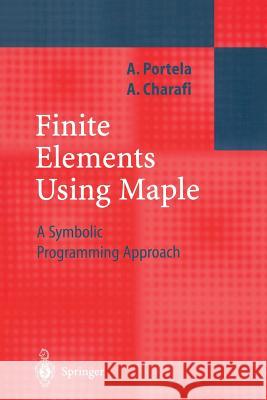Finite Elements Using Maple: A Symbolic Programming Approach » książka
Finite Elements Using Maple: A Symbolic Programming Approach
ISBN-13: 9783642627552 / Angielski / Miękka / 2012 / 326 str.
Almost all physical phenomena can be mathematically described in terms of differential equations. The finite element method is a tool for the appro- mate solution of differential equations. However, despite the extensive use of the finite element method by engineers in the industry, understanding the principles involved in its formulation is often lacking in the common user. As an approximation process, the finite ele ent method can be for- lated with the general technique of weighted residuals. This technique has the advantage of enhancing the essential unity of all processes of approxi- tion used in the solution of differential equations, such as finite differences, finite elements and boundary elements. The mathematics used in this text, though reasonably rigorous, is easily understood by the user with only a basic knowledge of Calculus. A common problem to the courses of Engineering is to decide about the best form to incorporate the use of computers in education. Traditional c- pilers, and even integrated programming environments such as Turbo Pascal, are not the most appropriate, since the student has to invest much time in developing an executable program that, in the best of cases, will be able to solve only one definitive type of problems. Moreover, the student ends up learning more about programming than about the problem that he/she wants to solve with the developed executable program.











